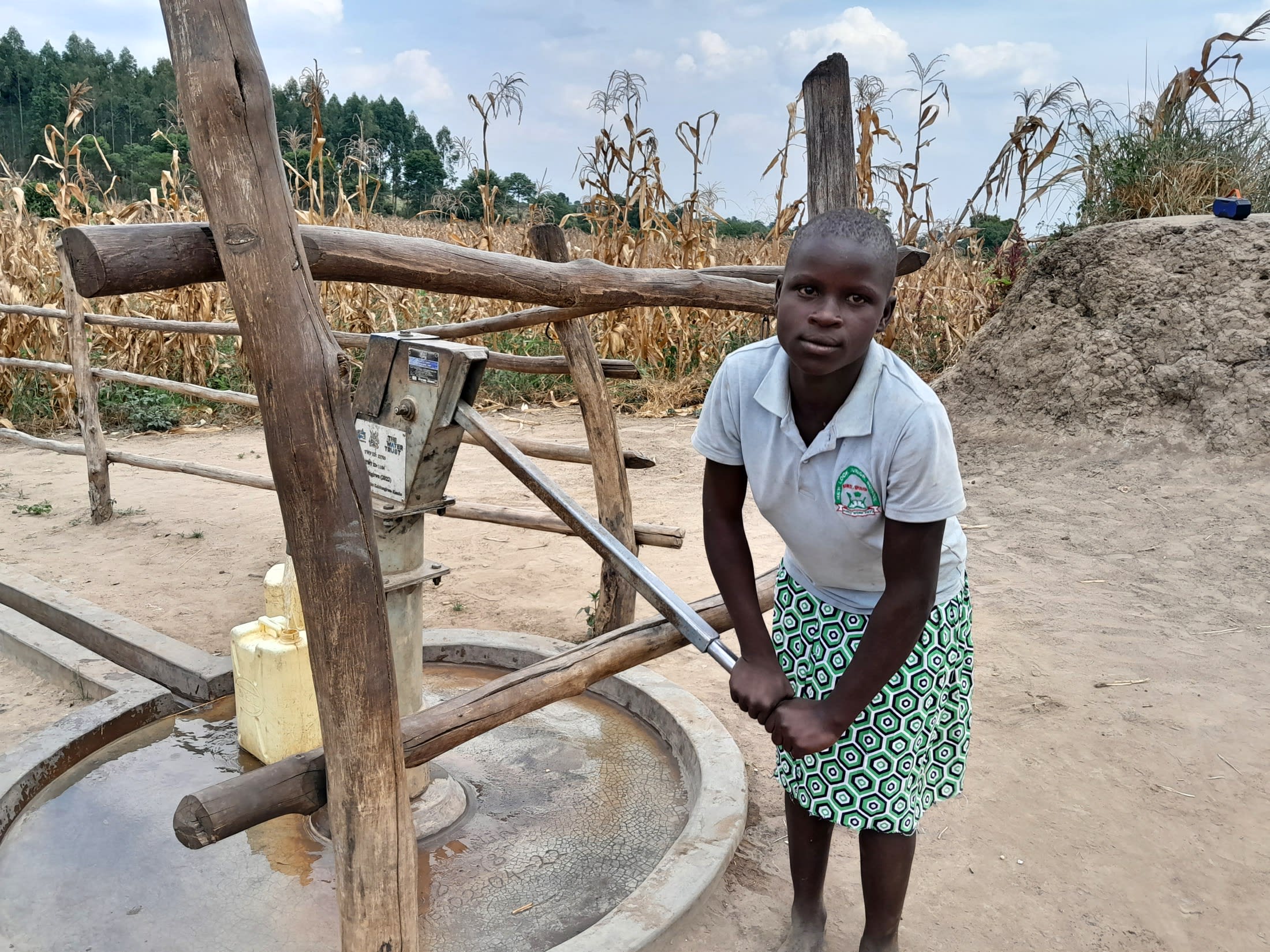A Year Later: Reduced Burden, Increased Health!

Racheal K, 12, recalled what life was like in Katakungirwa Kasahe Community before her well was installed last year.
Racheal said, "[We] used to fetch water from the dam, but it was very far. [My] parents would not send me to the waterpoint alone because it was very scary as I would go through sugar cane plantations; therefore, my mother would always escort us to the dam, hence spending time because instead of mother doing other domestic activities on time like cooking, she had to escort us to collect water. Whenever we would go there in the evening, we would come back from the water point at night, hence not getting enough time to concentrate on other domestic activities like washing dishes, washing uniforms, etc. [I] would always fail to get time to do homework, and going back to school the next day with undone work would lead to being punished by the teacher."
But life is much safer and less burdensome for Racheal and the other community members in Katakungirwa Kasahe Community now.
"The waterpoint being near helps to access water easily and have access to clean water; the availability of this waterpoint has helped to improve [my] personal hygiene because [I'm] able to wash uniforms and also bathe every day. When [we] come back from school in the evening, always find food at home and are no longer worried about fetching water from a long distance; the pressure of looking for water is reduced. [We] no longer fall sick as it used to be when fetching water from dams," she continued.
Having ready access to water from the well has made a difference for Racheal, allowing her to no longer worry about making long, unsafe treks to a questionable water source. She can focus on school without worrying about missing meals or baths.
Right now, there are others in neighboring communities that desperately need safe water access. Your support will immediately go to work to provide a clean water project - and we can't wait to introduce you to the next person you'll help.

See The Water Project in Racheal's Community »